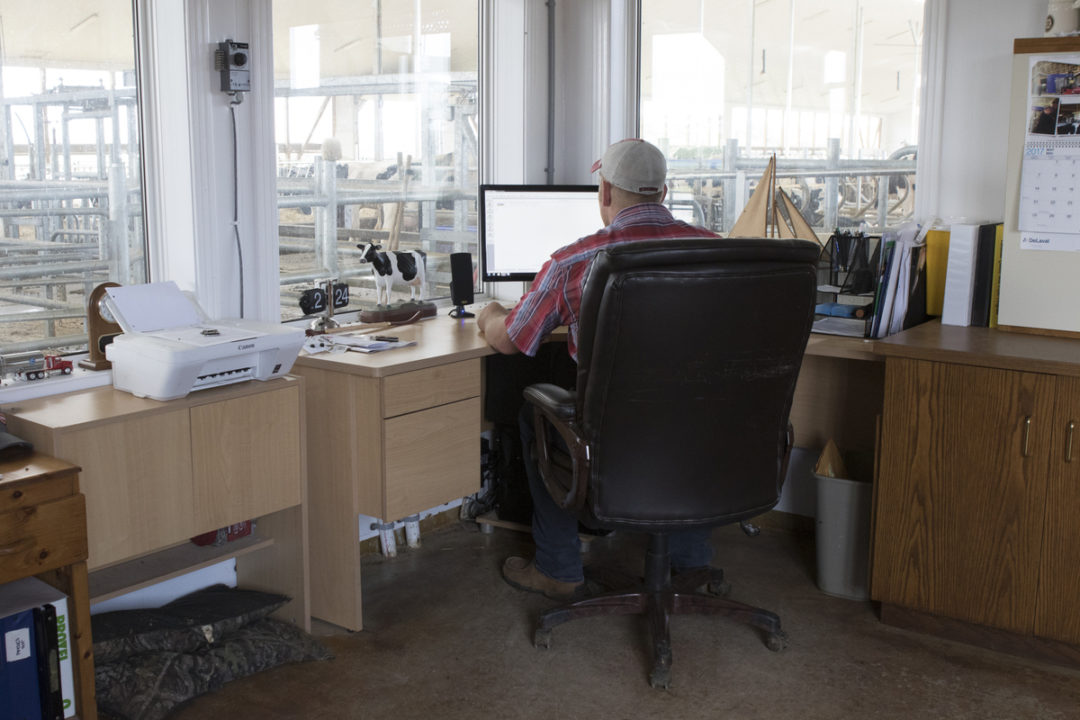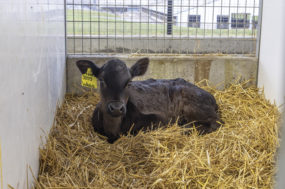Just last month, Paul’s 9-year-old son held a knife to his throat, screaming he was going to commit suicide. This wasn’t the first time this had happened either – it was the fourth time in just a few months. The COVID-19 pandemic has had a devastating effect on the mental health of young people. On top of that, this child has had some issues with anxiety and was dealing with bullying as well. Mental health professionals were able to drill down to a root problem for the young man: Dad wasn’t home enough. The boy found that acting out was a way to get his father’s attention. The dad was a dairyman who was trying to hold the farm together with his brother and grandfather during a labor shortage.
There were days when the family had only one employee show up to milk 950 cows. The owners felt they had better things to do than train people, which resulted in yelling and criticizing after the fact. Newly recruited staff were quitting within days because of the rushed pace and incredible workload the dairy demanded. I’ve said it before and I’ll say it again: People don’t quit jobs they like; they quit bad bosses. The way their staff was treated produced disloyal employees. These three men were all narcissists who only cared about their own needs, not the needs of employees or each other. As for Paul, he was absorbed in his own needs and his own workload. His family and partners began to feel like the employees – ready to quit. Narcissism was causing the farm to implode.
As for the farm’s effect on Paul’s son, the boy who once loved farming now resented it because it was stealing his dad from him. Paul said he was working hard to build a future for his son, but the harsh reality was that all the farm was becoming was his son’s future trust fund.
Paul kept his son’s issues a secret. In our first call, he stated that work-life balance wasn’t a problem within his household; it took four phone calls until this truth about his son came out. He revealed this in an emotional call he made to me as he followed a police cruiser to a mental hospital for his son. It was tough for Paul to admit to having problems he didn’t know how to handle.
Yes, a 9-year-old holding a knife to his throat and screaming suicide is disturbing. But do you know what was even more disturbing to me? How Paul’s brother reacted when Paul confessed his household’s secret.
“It isn’t the farm that’s the problem. Something else must be wrong. Paul rents a cottage with his kids every summer, and he has his son in hockey. We never got that kind of time with Dad. Paul’s family has it good.”
Here was Paul in tears, revealing to his brother that he was having real troubles at home and needed help and understanding from his partner, yet his brother Sam was completely cold and belligerent. Sam was completely exhibiting classic deflective, narcissistic behavior. There was no empathy displayed whatsoever. Believe it or not, I’ve seen this narcissistic behavior happen often. It happens when a dire circumstance is blamed on everything except the problems on the farm.
Psychology Today summarizes the negative impacts a narcissistic business owner has on others:
1. They will falsely claim that everything is fine and there is nothing wrong. They will try to first misdirect or claim there is nothing to allegations or circumstances. Individuals who bring up issues are discredited, humiliated and bullied.
2. They lash out with vindictiveness and will trumpet their greatness, their achievements (real or imagined) and portray themselves as worthy of being revered rather than reviled. They will do this by belittling and devaluing others.
3. As circumstances become dire, the narcissist will not take any responsibility – ever. Anything that has gone wrong is the responsibility of others. It is never their fault.
4. Lying will become second nature.
5. They’ll engage supporters or enablers to attack those who offer proof or evidence that they may not be so perfect after all.
6. They will wallow in victimhood, claiming they have been relentlessly and needlessly persecuted.
None of the family members empathized with Paul’s problems. They instead reacted by trumpeting their own problems and the sacrifices they had made for the farm. Everyone focused on victimhood, and nobody was focused on problem-solving.
If I wasn’t involved in re-steering that conversation, I’m certain Paul would have sold his shares and left the farm after that first moderated family meeting.
Paul and I talked individually about how he was obsessed with things he could not control and wallowing in them rather than what he could control. In our early calls, his own family problems were everyone else’s fault. He talked to me about the labor shortage, and his brother and dad not reacting to his complaints. He didn’t really want to improve himself. He called me just to get someone else to agree with him that he should quit the farm and retire on his inherited equity. Paul was the victim.
If you search the internet for a cure for narcissism, you’ll quickly see that most “professionals” suggest it is impossible to change and to divorce yourself from the situation. Over the past decade, I’ve dealt with hundreds of narcissistic farmers and have come to realize that improvement is a matter of challenging the narcissist to evolve to become a better person.
The first step Paul had to take was to lift the victim mentality and take ownership. His son taking a knife to his own throat was partially Paul’s fault for not being at home. Sure, he provided for his kids and wasn’t divorced, but he wasn’t “present.” Admitting that is not an easy pill to swallow. Instead of blaming his family and the farm, he needed to recognize that every entrepreneur has work-life balance issues. Nearly every dairy across America right now is understaffed; every business owner must deal with the cards they are dealt.







